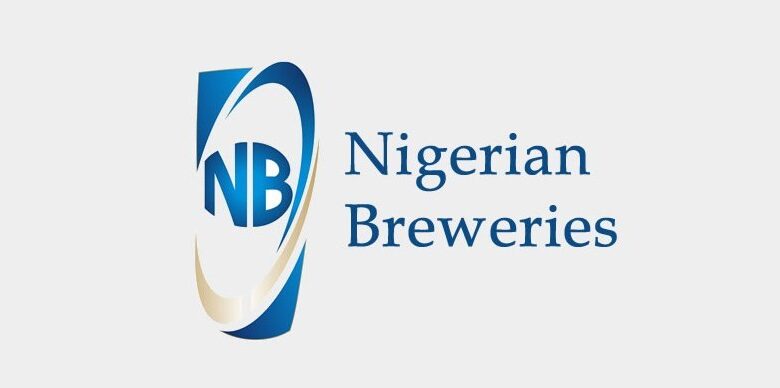Rising Energy and Forex Cost Drives Nigerian Breweries Plc’s Operating Loss in Q3 2022

“Russia and Ukraine are large exporters of ingredients such as barley, and sorghum which are used in the production of beer. Nigerian Breweries PLC is facing rising costs of these inputs like other beer makers in the world”.
Nigerian Breweries Plc has released its unaudited 9-month figures for the third quarter of 2022 ending September. The company recorded a profit after tax of N14.7 billion during the nine-month period but booked an operating loss of N3.9 billion in the third quarter of 2022 (Q3 2022) compared with an operating profit of N5.1 billion in the second quarter (Q2 2022).
According to its unaudited financial statement, the company recorded revenue of N119.36 billion with a gross profit of N35.7 billion. But marketing expenses have risen to N30.5 billion, administrative expenses to N6 billion, and finance expenses to about N6.1 billion. The company hence recorded a loss before tax of about N6.6 billion. The company got a respite with its income tax expenses of N2.7 billion. This effectively brings the net operating loss to about N3.9 billion.
In comparing Q3 2022 figures against Q3 2021 figures, there was a 19.3% increase in revenue from N100.02 billion to N119.36 billion. However, there was also a 24% increase in the cost of sales from N67.40 billion to N83.57 billion. In Q3 2022, marketing and distribution expenses increased by 33.5% when compared with Q3 2021.
Causative Factors
- Heavy rains and floods
Floods have affected many parts of Nigeria in the last 3 months. This has been a strong causative factor in the poor market performance of the brewing industry. According to the 9-month financial report for Nigerian Breweries, heavy rains and floods have displaced beer retailers and consumers in many parts of the country. This has reduced sales significantly.
Also Read: The $590 Billion Beer Market and Its Five Biggest Competitors
- Rising Inflation
While the company recorded revenue of N119.3 billion, a higher inflation rate and increased energy costs eroded revenue gains during the quarter. The average inflation rate of Nigeria in the third quarter of 2022 stood at 20.31%, with the inflation rate hitting a 17-year high of 20.77% in September 2022. This inflation rate has put immense pressure on the disposable income of customers.
Also Read: Working Lives: This Bar Owner Who Wants Her Business To Become a Conglomerate
- Market Seasonality
According to Uaboi Agbebaku, the company secretary of Nigerian Breweries, Plc “the last three months saw the return of market seasonality characterized by lower volume performance.” In Nigeria, the rainy season which peaks during the Q3 months sees Nigerians consuming lesser beer than at the start and end of the year (Q1 and Q4 months).
Q3 typically records the lowest beer consumption figures in Nigeria. Typically, Nigerians drink more when the weather is hot and less in cool weather. According to the report, despite the lower market performance, there was revenue growth which was driven by pricing.
This concept of market seasonality is also observable from the Nigerian Stock Exchange as four out of the 8 worst performing consumer good stocks in Q3 2022 were breweries.
- Foreign Exchange…Continuing naira weakness
According to the report by NB Plc, the net loss on foreign exchange transactions was put at N3.08 billion. About 40% of the inputs of breweries are imported; the cost of these inputs rises as the naira loses value. Naira has lost 50% of its value against the dollar this year with the currency sliding considerably in Q3.
- Impact of Inflation and Higher Energy Costs
The cost of sales, marketing & distribution, and administration expenses hit N360.56 billion in the 9-month period ending September 2022 up by 26.3% from N238.43 billion recorded in the 9-month period ending September 2021. This figure is reflective of the rising energy costs as well as inflation rates.
The drastic increase in the inflation rate in Nigeria is impacting manufacturers’ cost of inputs and sales. It has put more pressure on consumers as manufacturers transfer higher costs of inputs to them.
Another factor that has greatly constrained the manufacturing sector in 2022 is the higher energy costs. Poor electricity supply coupled with a 210% YoY increase in the price of diesel fuel has resulted in an astronomical rise in electricity costs in Nigeria. According to a report by the Nigerian Bureau of Statistics, the average liter price of diesel in July, August, and September of 2022 was N774. 38, N786.88, and N789.9 respectively. These figures represent an astronomic increase in the price of diesel fuel from January 2022 when it was around N288.
A news report noted that manufacturers spent about N639 billion on energy costs between 2014 and 2021. The report also stated that Nigerian manufacturers self-generate more than 14,000MW as part of efforts to cushion the effects of poor electricity supply in the country.
Putin Premium on Beer
Manufacturers across the world are affected by the global supply chain disruptions that Russia’s war on Ukraine has created.
The war has caused a critical breakdown in the supply of raw materials. This is because both countries (Russia and Ukraine) are key exporters of critical manufacturing raw materials. Both are major exporters of wheat, corn, barley, and sorghum which are critical raw materials in the beer-making industry. This disruption in the supply of raw materials has affected the global brewing industry, Nigeria’s inclusive.
The war is also responsible for the astronomical rise in the price of diesel. Nigerian manufacturers depend a lot on this source of energy which was comparatively very expensive even before Putin’s war.







